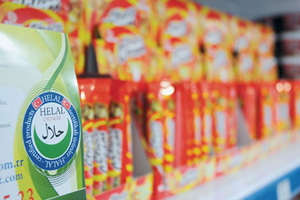Halal means that it is in accordance with the rules of Islamic religion, which is not prohibited in terms of religion, and is permitted to be used and consumed by religion. Contrary to these definitions, those who do not comply with Islamic rules and who are forbidden to use and consume religiously are called haram. In this case, based on the rules of Islam produced foods halal food It is called.
Each religion has its own concepts of halal and haram, but there are uncertainties in some prohibitions and rules, although some prohibitions are very clear. As such, more information is needed to classify which products are halal and which products are haram.
For example, it is clear that foods such as bread, water, fruit are halal food. Likewise, it is clear that foods such as wine, pork, dead animal meat are haram food. However, some foods are considered to be forbidden in some aspects and are considered halal in some aspects. For example, it is controversial whether food additives such as gelatin, glycerin, enzymes, animal fats and proteins are halal or haram, as their sources are not clearly known.
According to the generally accepted approach to end this uncertainty, haram the ayes have it:
• Pork and pork products
• Animals not slaughtered according to religious rules
• Self-dying animals before slaughter
• Animals slaughtered in the name of God other than Allah's name
• Alcohol and intoxicating substances
• Carnivorous animals, hunted birds and land animals with no ears outside
• Blood and blood products
• Products in contact with any of these products
Apart from this, all foodstuffs are considered halal.
In order to ensure that people are not concerned about halal or haram food and are confident about the products they consume, Halal Certificate (or Halal Certificate). This document is given to the products prepared according to the Islamic rules of the Hanafi, Shafi, Maliki and Hanbali sects. It is an international document showing that the product is not prohibited according to Islamic religious principles.
Having a Halal Certificate provides many benefits to both manufacturers and consumers. First of all, trust is created in consumers. Consumers have the opportunity to make informed choices in line with their preferences. Since producers are constantly under control, consumers can safely consume the food they buy.
Since Halal Certification activities are carried out by impartial and independent certification bodies, the additives used in production, the preparation and processing methods of the products, the cleanliness and health conditions of the facilities are inspected within strict safety rules.
Halal food sector has gained more importance not only in our country but also globally. As such, companies with internationally recognized Halal Certificate have the opportunity to enter the halal food market all over the world.
Halal Certificateshows that the food product not only complies with religious requirements, but also the hygiene and hygiene standards are complied with in all production stages.
If you want to get more information about the value of obtaining Halal Certificate, do not waste time to apply to the managers and employees of TÜRCERT certification organization operating in the field of certification studies, inspection and test studies and training services.

